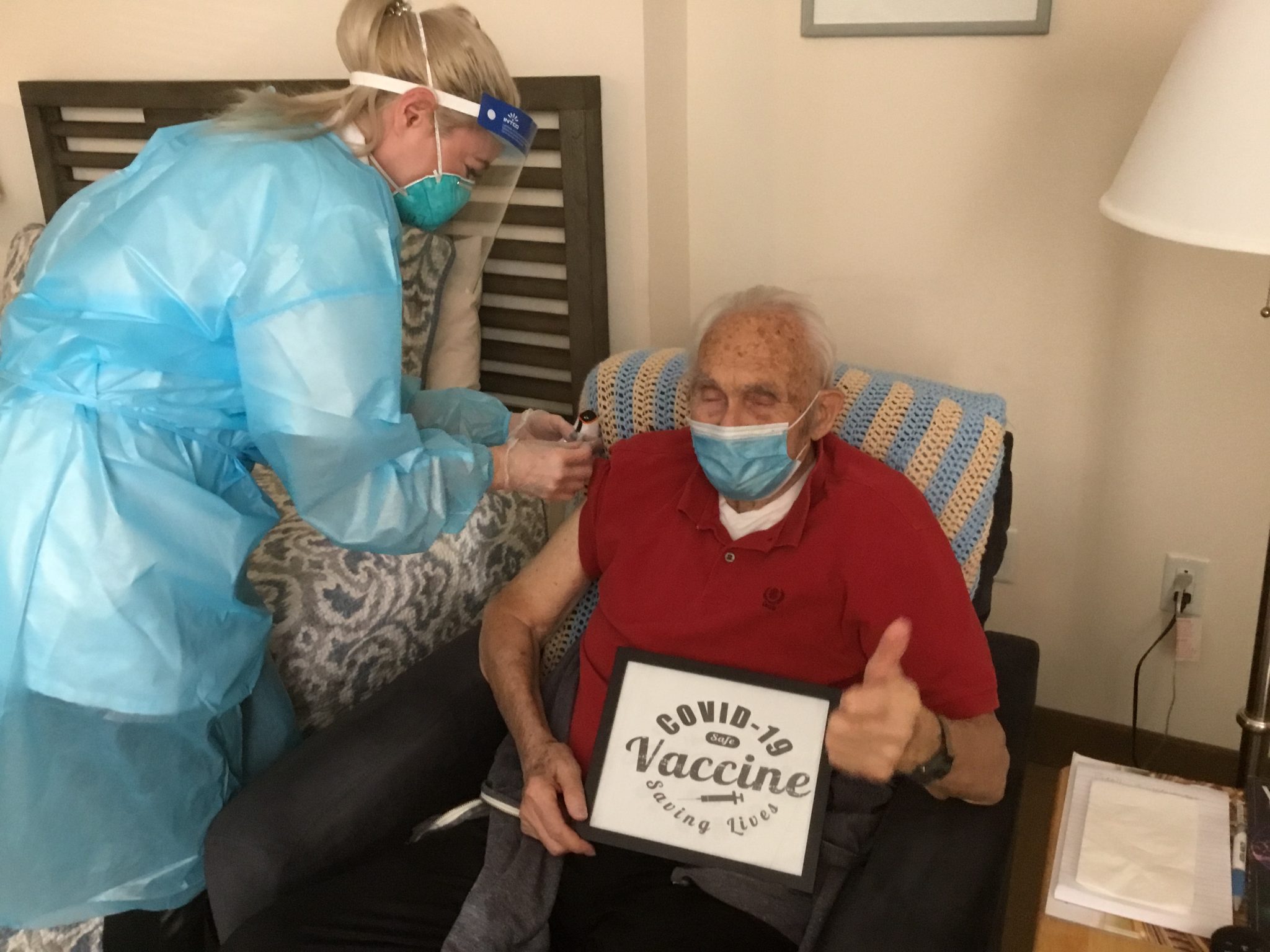Although five residents of Brandywine Living at Princeton died within a two-week span as a result of COVID-19, vaccinations have begun to keep all residents and staff members safe, according to administrators of the facility.
The residents who died were in their early 90s, on average, and had an average residence at the South Brunswick-based senior living facility of six-and-a-half years. Three of the residents died at a hospital and two of the residents died at Brandywine, according to Brenda J. Bacon, president and chief executive officer of Brandywine Living.
The deaths occurred from Dec. 28 to Jan. 8, Bacon said, most likely as the result of an outbreak at Brandywine Princeton that was initially reported on Dec. 16, several weeks after the Thanksgiving holiday. The peak of the outbreak was Dec. 28, she said.
She said many residents of the facility tend to have underlying conditions, which makes battling COVID more difficult.
“The long-term residents are part of our community, part of our hearts, part of our family. It has been extremely difficult,” Bacon said.
Bacon said the situation was reflective of the trend in the surrounding community.
“When (a disease) is that rampant, you are going to have to deal with it the best you can to protect residents,” she said.
Prior to the five recent deaths, Brandywine had a high success rate of keeping its 200 residents and staff members safe. No one had passed away from the virus since the pandemic began in mid-March.
“We started very early with COVID precautions,” Bacon said, noting there was a full stock of personal protective equipment available at the beginning of March; employees were required to wear masks, and gowns when necessary; sanitation procedures were increased; anyone who tested positive for the coronavirus was isolated for 14 days; employees were tested once or twice a week; anyone coming into the building was screened for symptoms; and employees were only allowed to work at Brandywine and not another health care facility to avoid cross-contamination.
COVID is “highly contagious and mostly invisible,” Bacon said, noting that 40% to 50% of transmission is by people who are asymptomatic.
“We have to use with COVID many, many interventions to try and keep our residents safe, particularly when the country and New Jersey have been so hot with infections,” she said.
However, she said she is “looking forward,” as Brandywine at Princeton already held its first vaccination clinic on Jan. 14, when about 100 residents and staff members received the first dose of the Pfizer-BioNTech vaccine.
In three weeks, those who chose to get their first dose of the vaccine will receive their second dose of the vaccine, and anyone who decides to get their first dose of the vaccine can do so.
Three weeks after that, group B will receive their second dose.
“We absolutely intend to vaccinate everyone (who wants the vaccine),” Bacon said.
Brandywine as a company has 32 communities in seven states, and had held 19 vaccination clinics as of press time.
Bacon said she worries about people who have been isolated at home for the past 10 months, and for those who are experiencing COVID fatigue.
“We value keeping our residents both social and safe. We want them to have fun, to have something to look forward to, to have friends, to laugh, to be safe,” she said. “I am very, very hopeful we soon will be returning to that with the vaccine. We have done everything we can to keep our residents safe with this awful virus hitting the entire world.”
She thanked Brandywine’s team of frontline “heroes.”
“I am feeling really positive we see the light at the end of this tunnel,” she said, reminding all to remain vigilant, mask up and get vaccinated.
“Hopefully we can come through this terrible period all coming out stronger,” she said.
Contact Jennifer Amato at [email protected]

